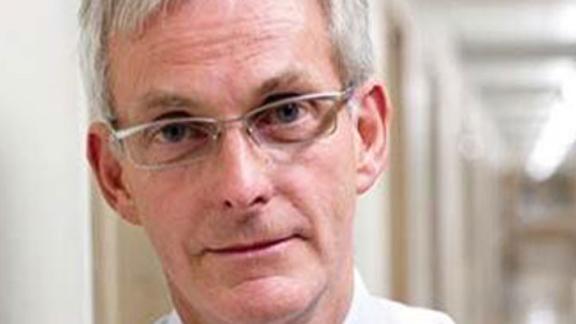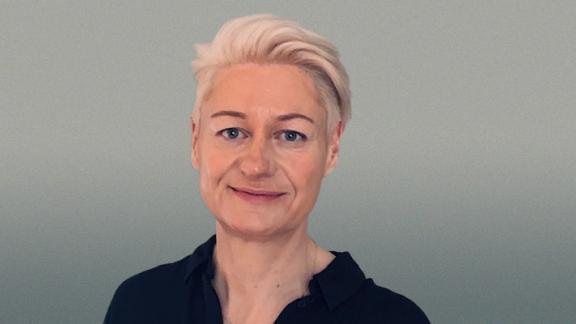Respiratory disease: a suitable case for integrated care?

Mike Morgan, national clinical director for respiratory services at NHS England, outlines the opportunities for improved patient care that have been opened up by the development of integrated care systems (ICSs).
Every winter, the number of people admitted to hospital for respiratory problems doubles from 1,000 to 2,000 a day, giving us a harsh reminder of the scale and impact of this health issue. Winter 2017/18 was no exception, with even higher numbers than usual being admitted for asthma, chronic obstructive pulmonary disease (COPD), pneumonia and other lower respiratory tract infections, plus others affected by seasonal flu.
In England, the overall number of respiratory admissions now rises throughout the year, as people with chronic respiratory diseases are often the frail elderly, or are part of the growing population of older people who have additional long-term conditions such as diabetes.
This increasing rate of admissions will become unsustainable if people continue to be brought in as emergencies before being referred to specialist services in secondary care – and this year’s winter will no doubt return the issue to the fore.
There is an opportunity here for secondary care respiratory specialists, primary care and commissioners to think more about how they can work together to support local people, identifying and offering the support needed earlier on to help people manage their own health and prevent their condition worsening, rather than waiting for an emergency to happen.
ICSs offer a ‘golden opportunity’ to integrate respiratory services
The NHS RightCare COPD pathway, developed to support local health economies to concentrate their improvement efforts where there is greatest opportunity to address variation and improve population health, places the onus on CCGs and STPs/ICSs to consider commissioning the whole pathway, taking into account the needs of the population.
The aim is to ensure that people with COPD receive care in the most appropriate and effective setting, with the skills and expertise currently mostly confined to secondary care settings being shared across primary and secondary care.
There are already excellent examples of community nurses and pulmonary rehabilitation services working together. There are, however, fewer examples of the true integration of specialist services working within primary or community services to deliver enhanced care closer to home. The move to integrated care systems offers us a golden opportunity to do this.
The Respiratory Futures web portal (sponsored by the British Thoracic Society and NHS England) is supporting such integration in respiratory care by bringing respiratory specialists and commissioners together to share best practice and innovations in this area. Its focus is on advancing the common goal of providing high-quality respiratory care that is patient-led and offers real value for money.
During 2018, the portal has focused on sharing information from integrated care teams across the UK health system for others to learn from. It also has a round-up of STP ambitions to bring respiratory services closer to people’s homes and provides links to examples of existing good practice where specialists work outside hospitals in a dedicated section on integration.
Integration in action
In Hillingdon, part of the North West London STP, a new system of support for primary care networks has been set up in which a specialist consultant and dedicated nurses help identify and manage patients with COPD and asthma in the community, as well as overseeing quality-assured spirometry (a simple breathing test used to help diagnose and monitor certain lung conditions).
The service is being led by a specialist respiratory consultant who oversees the integrated pathway, provides clinical leadership to the team of nurses, physios and psychologists, delivers consultant clinics for patients, and provides both virtual and in-person support to GPs.
Community-based clinics are run closer to patients’ homes by respiratory specialist nurses (or appropriately trained physiotherapists). They deliver spirometry in the community and holistic support to COPD patients, empowering them to keep well and to learn to recognise and self-manage any exacerbations of their condition when appropriate.
If a patient with known or suspected COPD does present at A&E, the team is on hand to help avoid an admission where possible, by arranging follow-up care and treatment in the community or at home.
Similarly, hospital consultant Dr Helen Ward from The Royal Wolverhampton NHS Trust, works across both primary and secondary care, providing community clinics, taking part in multidisciplinary team meetings with a range of healthcare staff and supporting GPs. Helen now also works as part of a Chronic Respiratory Multidisciplinary Team (MTD), with nurses and a palliative care team, treating patients in a hospice environment and supporting them to better manage their symptoms, as well as being Clinical Lead for vertical integration in the area, where several GP practices have integrated with the acute trust and community services.
They have standardised the COPD EMIS template across organisations, which sees more consistent outcomes for patients and staff, and consultants, like Helen, working directly alongside respiratory physios and nurses on a daily basis.
Planning for the future
Chronic respiratory disease is a growing issue and we cannot expect GPs to shoulder the burden of its impact on the quality of life for patients in the community on their own. We have an opportunity to address the issue now and improve outcomes by allowing specialists to apply their skills outside hospitals, with commissioners facilitating this process by developing integrated care structures.
Respiratory disease is a great place for integrated care systems to start, and offers a massive opportunity to make a real difference for patients.
Mike Morgan is the national clinical director for respiratory services at NHS England and chair of the Clinical Reference Group for Respiratory Specialised Commissioning. He is also a past president of the British Thoracic Society. He is a consultant respiratory physician at the Department of Respiratory Medicine, Allergy and Thoracic Surgery at the University Hospitals of Leicester NHS Trust at Glenfield Hospital and Honorary Professor at the University of Leicester.



